At first glance, my garden is not pretty.
Randomly spaced, gawky-looking clumps of weeds surround and even occupy most of my vegetable beds. Some have flowers, but most are nondescript bunches of leaves or clumps of grass. It’s a scraggly, raggedy, overgrown and messy looking place. Why am I not pulling the weeds and cleaning it up?
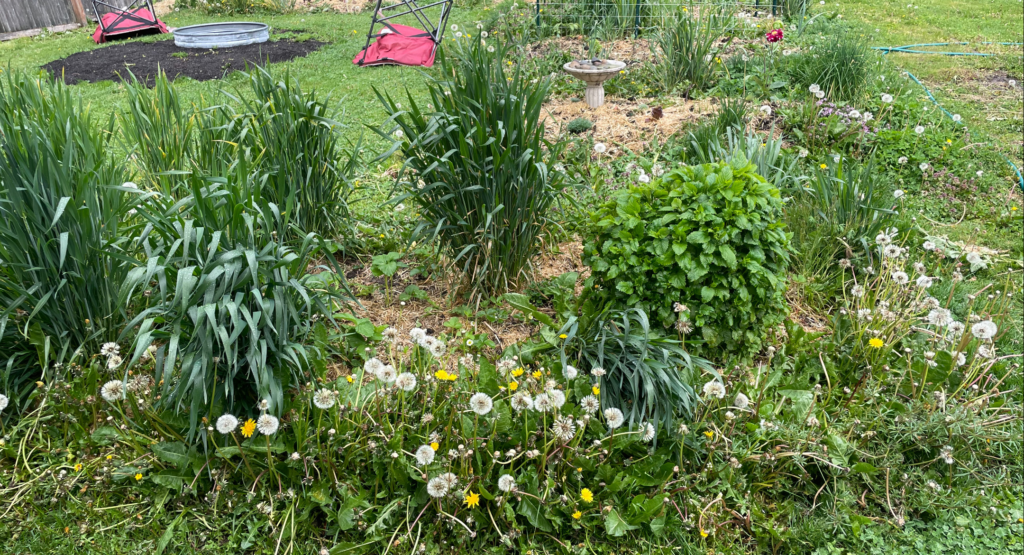
A closer look reveals the beauty of these so-called weeds – or as I prefer to call them – volunteers.
A rich and colorful diversity of plant life has flourished without my interference. Although they are not native species, these volunteer plants are well suited to my garden ecosystem. Many are edible or medicinal, others produce flowers that attract pollinators. When you allow nature to determine what thrives and what doesn’t, what remains are plants that require little but give much in return.
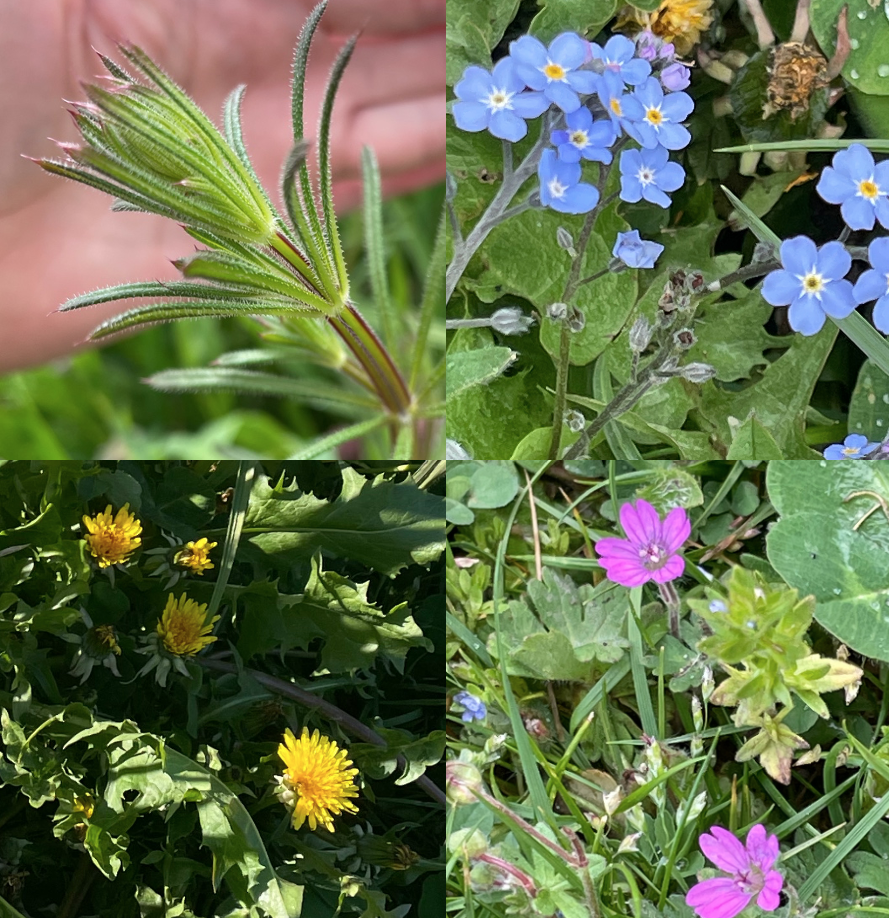
Looking even deeper reveals that the volunteer plants are important.
Sometimes I must remove a volunteer plant to make room for a another plant. Carefully, I loosen the volunteer plant from the soil with my trusty garden knife, to minimize how much of the soil ecosystem I disturb. Instantly I see bugs and worms scurry to take cover as the open air blasts into their carefully constructed home. These important decomposers are more numerous near established, healthy root systems – without which they aren’t there to break up soil or provide nutrients.
Firmly tapping soil off the newly extracted volunteer plant, I leave behind as much of the matter attached to the root system as I can, knowing important fungi and nutrients that were being used and sustained by that plant will be helpful to the new plant I am replacing it with. As I set this plant aside, I notice its intricate roots. The amount of nutrient exchange, collaboration with fungi, microbes and bacteria, that was happening in that small space is astounding. None of that would be active or present to that degree in bare, empty earth. Often I don’t even remove these roots, but simply cut the volunteer plant all the way to the ground.
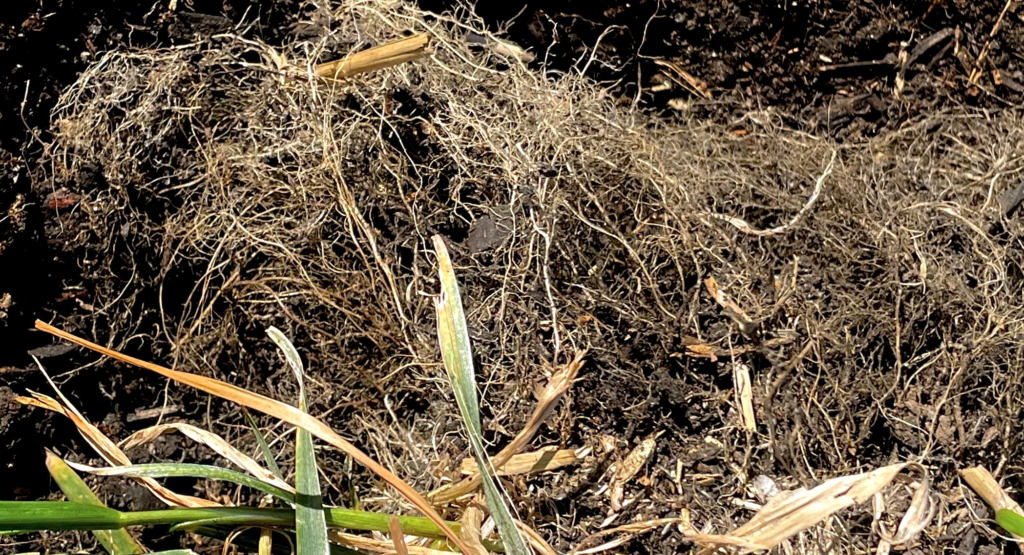
I place the new basil plant in the hole left behind by the volunteer plant, and arrange the soil and mulch around it with care. The high level of nutrients, fungi, microbes, bugs, worms, organic matter that the volunteer plant was part of is now available to the basil. Surrounding it are other volunteer plants that I do not remove, so they can continue sustaining this ecosystem. Don’t leave the soil uncovered or unprotected. Leave a plant resident in there at all times, or at least cover it with mulch!
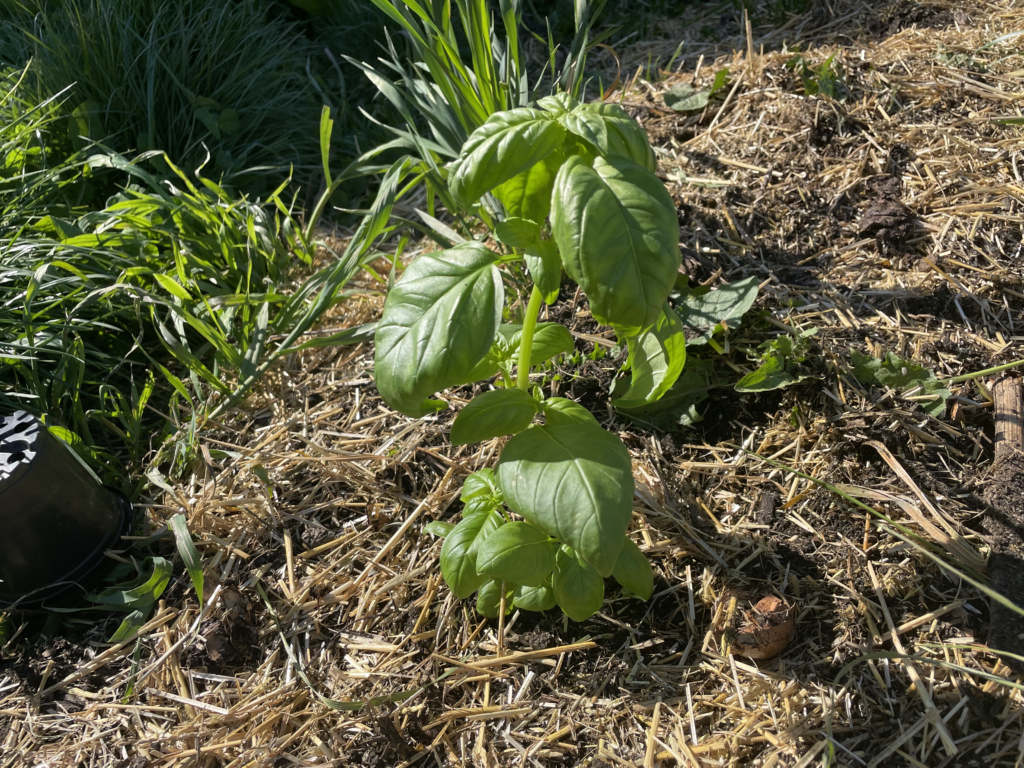
My favorite gardening tool is this lightweight, inexpensive gardening knife. I use it for trimming, harvesting, and removing large weeds when needed. When I remove a weed I insert the knife vertically into the soil, several times, around the base of the plant. This might sever a few roots but mostly just loosens the root system from the dirt so I can gently remove it. Using a shovel or trowel disturbs more of the dirt and doesn’t do a good job of getting the excess dirt off of the roots.
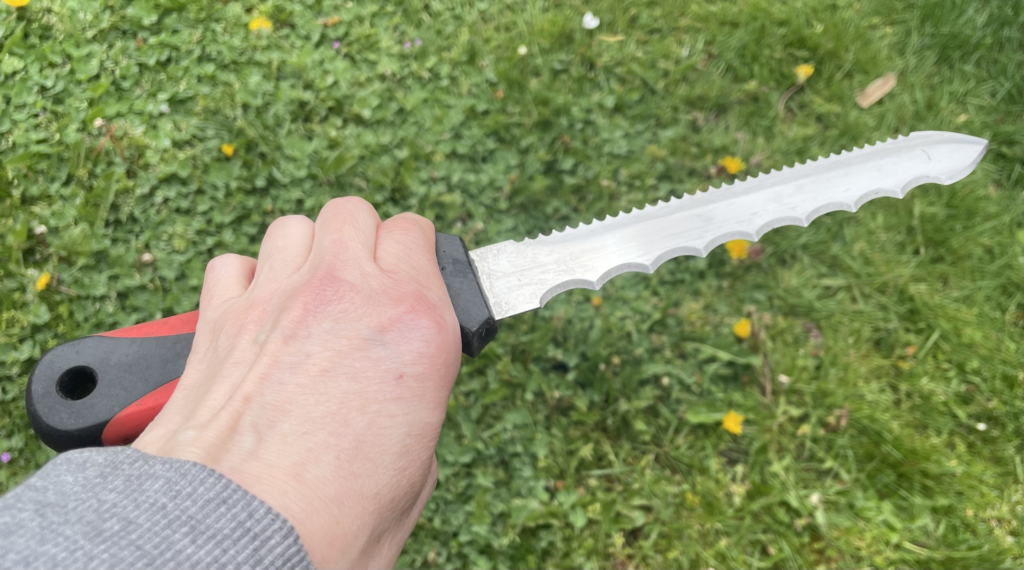
Here is a link to the knife I use:
https://www.amazon.com/gp/product/B07CTRT5DN
We can learn so much from the plants that invite themselves.
Volunteer plants give us vital information on the health of our soil ecosystem. In my yard, the areas surrounding my vegetable beds are mostly dandelions and clover that thrive in the nutrient deficient, compacted soil that used to make up the entire yard. I have noticed they differ from the grasses, nettle and other nutrient-loving volunteers that grow in my vegetable beds.
Professor Mark Valen offers this short and informative video that explains how these volunteer plants can show us what is happening in our soil ecosystem.
Protecting the soil ecosystem is key to how I garden.
I don’t damage the soil just to satisfy an urge on my part to have a garden that is “pretty”. I am not trying for a garden that resembles an outdoor living room or grocery store. Everything tidy and orderly. Everything in rows or contained. This is not how nature works. Nature is not pretty. Nature is wild, and beautiful. To us seemingly unpredictable, and absolutely uncontrollable.
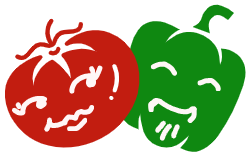
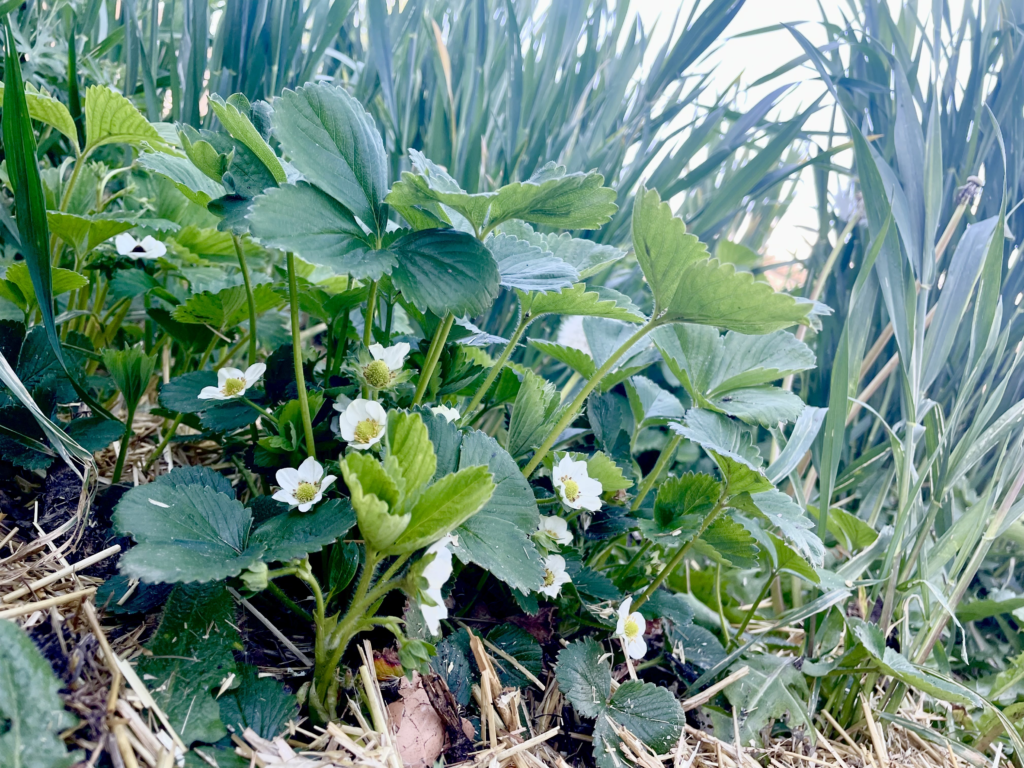
I suppose I over-weed. At least I’m not dumping coffee straight into my garden anymore! 🤣